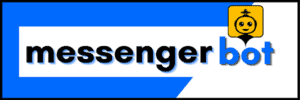Key Takeaways
- Mastering SaaS sales skills is essential for thriving in the competitive software industry.
- Key techniques include effective sales strategy development and strong customer relationship management.
- The innovative 3-3-2-2-2 rule helps track performance metrics for sustainable growth.
- Highlighting relevant SaaS skills on your resume can significantly enhance job prospects.
- Continuous learning and adaptation to market changes are crucial for ongoing success in SaaS sales.
In the rapidly evolving landscape of technology, mastering saas sales skills has become essential for professionals aiming to thrive in the competitive SaaS industry. This article delves into the core competencies that define successful SaaS sales, exploring whether SaaS sales is a skill in itself and highlighting the importance of these skills in today’s market. We will outline the essential saas sales techniques you need to excel, along with practical tips on how to develop these skills effectively. Additionally, we will introduce the innovative 3-3-2-2-2 rule, a framework designed to enhance your sales strategy. As we progress, you’ll learn how to effectively list your saas skills on your resume, ensuring you stand out to potential employers. Whether you’re new to the field or looking to refine your expertise, this guide will equip you with the insights and tools necessary for success in SaaS sales.
Is SaaS Sales a Skill?
Yes, SaaS (Software as a Service) sales is indeed a skill that encompasses a variety of competencies essential for success in the technology-driven marketplace. Understanding these SaaS sales skills is crucial for anyone looking to thrive in this competitive field.
Understanding SaaS Sales Skills
Effective SaaS sales professionals possess a unique blend of skills that enable them to navigate the complexities of selling software solutions. Here are key skills that define successful SaaS sales:
- Understanding of SaaS Products: A deep knowledge of the software being sold is crucial. This includes understanding features, benefits, and how the product solves specific customer pain points. Familiarity with industry trends and competitor offerings is also vital.
- Sales Strategy Development: Crafting a successful sales strategy tailored to the SaaS model is essential. This involves identifying target markets, creating buyer personas, and developing a value proposition that resonates with potential customers.
- Customer Relationship Management (CRM): Proficiency in using CRM tools to track interactions, manage leads, and analyze sales data is critical. Effective use of CRM can enhance customer retention and streamline the sales process.
- Communication Skills: Strong verbal and written communication skills are necessary for articulating the value of SaaS products. This includes the ability to conduct engaging demos and presentations that highlight product benefits.
- Negotiation Skills: The ability to negotiate terms and close deals is a fundamental aspect of SaaS sales. This requires understanding customer needs and finding mutually beneficial solutions.
- Technical Acumen: A solid grasp of technology and how SaaS integrates into a customer’s existing systems can set a sales leader apart. This includes understanding APIs, integrations, and data security.
- Data-Driven Decision Making: Utilizing analytics to inform sales strategies and decisions is increasingly important. This includes tracking key performance indicators (KPIs) and adjusting tactics based on data insights.
- Adaptability: The SaaS landscape is constantly evolving, so being adaptable to new tools, technologies, and market changes is crucial for ongoing success.
- Team Leadership: For those in leadership roles, the ability to inspire and manage a sales team effectively is essential. This includes mentoring team members and fostering a collaborative environment.
- Customer Success Focus: A strong emphasis on customer success ensures that clients derive maximum value from the product, leading to renewals and upsells. This involves proactive engagement and support post-sale.
Incorporating tools like Messenger Bot can enhance customer interactions by providing instant support and information, streamlining the sales process, and improving customer satisfaction. By leveraging these skills and tools, SaaS sales professionals can significantly improve their effectiveness and drive revenue growth.
The Importance of SaaS Sales Skills in Today’s Market
In today’s fast-paced digital landscape, the importance of SaaS sales skills cannot be overstated. As businesses increasingly rely on software solutions to enhance their operations, the demand for skilled SaaS sales professionals continues to grow. Here’s why these skills are vital:
- Competitive Advantage: Mastering SaaS sales skills provides a competitive edge in a crowded marketplace. Understanding customer needs and delivering tailored solutions can set a salesperson apart from the competition.
- Revenue Growth: Effective SaaS sales techniques directly contribute to increased revenue. Professionals who can articulate value and close deals are essential for driving business success.
- Customer Retention: A focus on customer success and relationship management leads to higher retention rates. Satisfied customers are more likely to renew subscriptions and refer others.
- Adaptation to Market Changes: The ability to adapt sales strategies based on market trends and customer feedback is crucial. Skilled professionals can pivot quickly to meet evolving demands.
- Leveraging Technology: Utilizing advanced tools and analytics enhances the sales process. Professionals who are tech-savvy can optimize their approach and improve overall efficiency.
For further reading on SaaS sales skills, consider resources from industry leaders such as HubSpot and Salesforce, which provide comprehensive insights into effective sales strategies and best practices.

What skills do I need for SaaS?
Essential SaaS Sales Skills for Success
To work effectively in a Software as a Service (SaaS) company, a diverse set of skills is essential. Here’s a comprehensive breakdown of the key skills required:
- Technical Proficiency: Familiarity with cloud computing, software development, and data management is crucial. Understanding programming languages such as Java, Python, or JavaScript can enhance your ability to contribute to product development. Knowledge of SaaS platforms and tools, including CRM and ERP systems, is also beneficial.
- Problem-Solving and Analytical Thinking: The ability to analyze complex problems and devise effective solutions is vital. This includes data analysis skills to interpret user behavior and improve product offerings. According to a study by McKinsey, strong analytical skills can lead to better decision-making and increased efficiency in SaaS operations.
- Adaptability and Agility: The SaaS industry is fast-paced and constantly evolving. Professionals must be adaptable to new technologies and methodologies, such as Agile and DevOps practices, which facilitate rapid development and deployment of software.
- Customer-Centric Mindset: Understanding customer needs and delivering exceptional user experiences is paramount. This involves gathering user feedback and utilizing it to enhance product features. Research from the Harvard Business Review emphasizes that a customer-centric approach can significantly improve retention rates.
- Project Management Capabilities: Proficiency in project management methodologies, such as Scrum or Kanban, is essential for coordinating teams and ensuring timely delivery of projects. Certifications like PMP or Agile can further validate your skills in this area.
- Team Collaboration and Communication: Effective communication skills are necessary for collaborating with cross-functional teams, including developers, marketers, and sales personnel. Tools like Slack and Microsoft Teams facilitate seamless communication in remote work environments.
- Continuous Learning and Professional Development: The SaaS landscape is ever-changing, making it important to stay updated with the latest trends and technologies. Engaging in online courses, webinars, and industry conferences can enhance your knowledge and skills.
Incorporating these skills will not only prepare you for a successful career in a SaaS company but also position you as a valuable asset in a competitive job market. For further insights, consider exploring resources from Salesforce and HubSpot, which provide extensive information on industry best practices and skill development.
How to Develop SaaS Selling Skills
Developing SaaS selling skills is crucial for anyone looking to excel in this field. Here are some effective strategies:
- Enroll in SaaS Sales Training Courses: Participating in structured SaaS sales training courses can provide you with foundational knowledge and practical techniques. Platforms like Coursera and LinkedIn Learning offer valuable resources.
- Practice SaaS Sales Techniques: Regularly practicing different SaaS sales techniques through role-playing or simulations can enhance your confidence and effectiveness in real-world scenarios.
- Seek Mentorship: Finding a mentor with experience in SaaS sales can provide personalized guidance and insights into best practices.
- Utilize Free Resources: Take advantage of SaaS sales training free resources available online to supplement your learning.
- Network with Industry Professionals: Engaging with peers in the SaaS community through forums and social media platforms can expose you to new ideas and trends.
By actively developing these skills, you can significantly enhance your SaaS sales capabilities and improve your prospects in this dynamic industry.
What are SaaS skills?
SaaS skills encompass a range of competencies essential for success in the Software as a Service industry. These skills not only facilitate effective sales but also enhance overall performance in a competitive market. Understanding these skills is crucial for anyone looking to excel in SaaS sales.
Overview of Key SaaS Skills
To thrive in SaaS sales, professionals must develop a robust skill set that includes:
- Cloud Computing Proficiency: Familiarity with cloud platforms like AWS, Azure, or Google Cloud is vital for understanding how SaaS applications operate and are delivered.
- Software Development Knowledge: Basic understanding of programming languages such as Java or Python can be beneficial, especially when communicating with technical teams.
- Data Management and Analytics: Skills in data analysis and management are crucial for interpreting user data and making informed decisions that drive sales strategies.
- Customer Relationship Management (CRM): Proficiency in CRM tools like Salesforce enhances the ability to manage customer interactions and improve satisfaction.
- Sales Techniques: Mastery of effective SaaS sales techniques, including consultative selling and value-based selling, is essential for closing deals.
These skills collectively contribute to a well-rounded SaaS sales professional, capable of navigating the complexities of the industry.
SaaS Sales Knowledge: What You Need to Know
Having a solid foundation of SaaS sales knowledge is imperative for anyone entering this field. Key areas to focus on include:
- Understanding SaaS Sales Models: Familiarize yourself with different pricing models, such as subscription-based and usage-based pricing, to effectively communicate value to potential customers.
- Market Trends: Stay updated on industry trends and emerging technologies that impact SaaS sales, such as AI and machine learning, which can enhance product offerings.
- Competitive Landscape: Knowledge of competitors and their offerings allows for better positioning of your product in the market.
- Sales Metrics: Understanding key performance indicators (KPIs) such as Customer Acquisition Cost (CAC) and Lifetime Value (LTV) is crucial for evaluating sales effectiveness.
By mastering these aspects of SaaS sales knowledge, you can significantly improve your effectiveness and career prospects in the SaaS industry. For those looking to enhance their skills, consider exploring free SaaS sales training resources or enrolling in comprehensive SaaS sales training courses.
What is the 3 3 2 2 2 Rule of SaaS?
The 3-3-2-2-2 rule is a strategic framework that many Software as a Service (SaaS) companies utilize to ensure sustainable growth and operational efficiency. This rule emphasizes the importance of tracking key performance indicators (KPIs) over specific time frames to maintain a balanced approach to growth. Here’s a breakdown of the components of the 3-3-2-2-2 rule:
- 3 Months of Recurring Revenue Growth: SaaS businesses should aim for consistent growth in recurring revenue over a three-month period. This metric is crucial as it reflects the stability and predictability of income, which is essential for long-term planning and investment.
- 3 Months of Customer Retention: Maintaining a high customer retention rate over three months is vital. Retaining customers not only reduces churn but also enhances lifetime value (LTV), which is a critical metric for SaaS profitability. According to a study by Bain & Company, increasing customer retention rates by just 5% can increase profits by 25% to 95%.
- 2 Months of Sales Growth: A focus on achieving sales growth over a two-month period helps ensure that the business is expanding its customer base. This can be achieved through effective marketing strategies, sales initiatives, and customer engagement practices.
- 2 Months of Cash Flow: Positive cash flow over two months is essential for operational sustainability. It allows businesses to cover expenses, invest in growth opportunities, and weather any financial downturns. According to the U.S. Small Business Administration, managing cash flow effectively is one of the top challenges for small businesses.
- 2 Months of Net Revenue Growth: Finally, achieving net revenue growth over a two-month period is critical for assessing overall business health. This metric accounts for revenue after deductions for returns, discounts, and churn, providing a clearer picture of financial performance.
Incorporating these metrics into regular business reviews can help SaaS companies stay aligned with their growth objectives and adapt to market changes. For further insights on SaaS metrics and best practices, resources such as the SaaS Metrics Guide by SaaStr and the annual SaaS Benchmark Report by KeyBanc Capital Markets provide valuable data and trends in the industry.
Applying the 3 3 2 2 2 Rule in Real-World Scenarios
Implementing the 3-3-2-2-2 rule in real-world scenarios can significantly enhance a SaaS company’s operational efficiency and growth trajectory. Here are some practical applications:
- Revenue Tracking: Regularly assess your recurring revenue to identify trends and make informed decisions. Utilize SaaS sales training programs to equip your sales team with the skills needed to drive revenue growth.
- Customer Feedback: Engage with customers to gather feedback on their experiences. This can help improve retention rates and inform your SaaS sales techniques.
- Sales Initiatives: Launch targeted marketing campaigns based on sales growth metrics. This ensures that your efforts align with customer acquisition goals.
- Cash Flow Management: Monitor cash flow closely to ensure that you can sustain operations and invest in future growth. Consider utilizing SaaS sales training courses that focus on financial literacy for sales teams.
- Performance Reviews: Conduct regular reviews of your net revenue to understand the impact of churn and discounts on your overall financial health. This insight can guide your sales strategies and customer engagement practices.
By applying the 3-3-2-2-2 rule effectively, SaaS companies can not only enhance their operational strategies but also improve their overall market positioning and profitability.

How to List SaaS Skills on Resume?
Crafting a SaaS sales skills resume requires a strategic approach to highlight your qualifications effectively. Here’s how to present your SaaS skills in a way that stands out to potential employers:
Crafting a SaaS Sales Skills Resume
To effectively list SaaS (Software as a Service) skills on your resume, consider the following structured approach:
- Identify Relevant Skills: Focus on both technical and soft skills that are pertinent to SaaS roles. Key technical skills may include:
- Cloud computing platforms (e.g., AWS, Azure, Google Cloud)
- Programming languages (e.g., JavaScript, Python, Ruby)
- Familiarity with SaaS metrics (e.g., MRR, ARR, CAC)
- Experience with APIs and integrations
- Knowledge of data security and compliance (e.g., GDPR, HIPAA)
- Highlight Industry Tools: Mention specific SaaS tools and software you are proficient in, such as:
- CRM systems (e.g., Salesforce, HubSpot)
- Project management tools (e.g., Jira, Trello)
- Analytics platforms (e.g., Google Analytics, Mixpanel)
- Marketing automation tools (e.g., Marketo, Mailchimp)
- Showcase Problem-Solving Abilities: Include examples of how you have used your SaaS skills to solve problems or improve processes. Use metrics to quantify your achievements, such as:
- “Increased customer retention by 20% through the implementation of a new CRM system.”
- “Reduced onboarding time by 30% by streamlining the SaaS product training process.”
- Tailor Your Resume: Customize your resume for each job application by incorporating keywords from the job description. This not only enhances keyword density but also demonstrates your alignment with the role.
- Use Action Verbs: Start each bullet point with strong action verbs to convey your contributions effectively. Examples include “developed,” “implemented,” “optimized,” and “analyzed.”
- Include Certifications: If you have relevant certifications (e.g., AWS Certified Solutions Architect, Google Cloud Professional), be sure to list them to enhance your credibility.
- Format for Clarity: Use a clean, professional format with clear headings and bullet points to ensure readability. This helps hiring managers quickly identify your key skills.
By following these guidelines, you can create a compelling resume that effectively showcases your SaaS skills, making you a strong candidate in the competitive job market. For further insights, you may refer to resources from industry leaders like LinkedIn Learning or Coursera, which offer courses on SaaS skills and resume optimization.
Tips for Highlighting SaaS Skills on Your Resume
To ensure your SaaS sales skills resonate with hiring managers, consider these additional tips:
- Be Specific: Instead of vague statements, provide specific examples of your achievements and how your SaaS skills contributed to those outcomes.
- Quantify Results: Use numbers to demonstrate the impact of your work, such as sales growth percentages or efficiency improvements.
- Keep It Relevant: Focus on skills and experiences that directly relate to the SaaS sales job description, ensuring your resume aligns with the employer’s needs.
- Utilize Keywords: Incorporate relevant keywords like “SaaS sales techniques” and “SaaS sales training” to enhance your resume’s visibility in applicant tracking systems.
By implementing these strategies, you can effectively highlight your SaaS sales skills on your resume, increasing your chances of landing an interview and showcasing your potential in the SaaS industry.
What are SaaS Sales Examples?
SaaS (Software as a Service) sales refer to the process of selling software solutions that are hosted in the cloud and accessed via the internet, rather than being installed on local computers. Here are some prominent examples of SaaS sales:
- Salesforce: A leading customer relationship management (CRM) platform that enables businesses to manage customer interactions, sales processes, and marketing campaigns effectively. Salesforce’s cloud-based model allows for real-time data access and collaboration.
- Slack: A communication platform designed for teams, Slack enhances collaboration through messaging, file sharing, and integration with other tools. Its subscription-based model allows organizations to scale their usage based on team size and needs.
- Zoom: A video conferencing tool that gained immense popularity during the pandemic, Zoom offers various plans for individuals, businesses, and educational institutions. Its ease of use and robust features make it a preferred choice for remote communication.
- HubSpot: An all-in-one marketing, sales, and service platform that provides tools for inbound marketing, sales automation, and customer service. HubSpot’s freemium model allows businesses to start with basic features and upgrade as they grow.
- Dropbox: A cloud storage solution that allows users to store and share files securely. Dropbox’s SaaS model enables seamless access to files from any device, making it a popular choice for both individuals and businesses.
- Mailchimp: An email marketing service that helps businesses manage and automate their email campaigns. Mailchimp’s user-friendly interface and analytics tools make it an essential platform for marketers.
- Atlassian (Jira and Confluence): Jira is a project management tool, while Confluence is a collaboration platform. Both are widely used in software development and project management, providing teams with the tools needed to plan, track, and collaborate effectively.
These examples illustrate the diverse applications of SaaS in various industries, showcasing how cloud-based solutions can enhance efficiency, collaboration, and customer engagement.
Analyzing Successful SaaS Sales Techniques
To excel in SaaS sales, understanding effective sales techniques is crucial. Here are some successful SaaS sales techniques that can drive results:
- Solution Selling: Focus on understanding the customer’s pain points and presenting your SaaS solution as the answer to their specific needs. This approach builds trust and demonstrates value.
- Free Trials and Demos: Offering potential customers a free trial or demo of your software allows them to experience the product firsthand. This can significantly increase conversion rates as users become familiar with the benefits of your solution.
- Customer Success Focus: Prioritize customer success by providing ongoing support and resources. This not only helps retain customers but also encourages upselling and referrals.
- Data-Driven Insights: Utilize analytics to track user behavior and engagement with your SaaS product. This information can inform your sales strategy and help tailor your approach to meet customer needs.
- Personalized Communication: Engage with leads through personalized emails and follow-ups. Tailoring your communication based on their interactions with your brand can enhance the customer experience.
By implementing these SaaS sales techniques, businesses can improve their sales processes and achieve greater success in the competitive SaaS market. For further insights into SaaS sales strategies and trends, refer to authoritative sources such as Salesforce and HubSpot.
Exploring SaaS Sales Opportunities
SaaS Sales Jobs: What to Expect
In the rapidly evolving landscape of technology, SaaS sales jobs are becoming increasingly vital. These roles typically involve selling software solutions that are hosted in the cloud, allowing businesses to access applications via the internet. As a SaaS sales professional, you can expect to engage with a diverse range of clients, from startups to large enterprises, each with unique needs and challenges.
Key responsibilities often include:
– **Identifying Prospects**: Utilizing various tools and techniques to find potential customers who could benefit from your SaaS solutions.
– **Conducting Demos**: Showcasing the software’s features and benefits through live demonstrations, which is crucial for converting leads into customers.
– **Managing Relationships**: Building and maintaining strong relationships with clients to ensure satisfaction and encourage renewals.
– **Meeting Sales Targets**: Achieving specific sales goals set by your organization, which often involves strategic planning and execution of sales techniques.
The demand for skilled SaaS sales professionals is high, making it a lucrative career path. According to industry reports, SaaS sales reps can earn competitive salaries, often supplemented by commissions based on performance.
Understanding SaaS Sales Salary and Career Growth
The salary for SaaS sales positions can vary widely based on experience, location, and the specific company. On average, SaaS sales representatives can expect to earn between $60,000 and $120,000 annually, with top performers making significantly more through commissions.
Career growth in SaaS sales is promising. Many professionals start as sales representatives and can advance to roles such as:
– **Sales Manager**: Overseeing a team of sales reps and strategizing to meet sales goals.
– **Account Executive**: Focusing on larger accounts and managing more complex sales processes.
– **Chief Revenue Officer (CRO)**: Leading the overall sales strategy and revenue generation for the company.
To enhance your career prospects, consider enrolling in SaaS sales training programs or courses. Many platforms offer free SaaS sales training resources, which can help you develop essential skills and stay updated on the latest sales techniques. For instance, platforms like [LinkedIn Learning](https://www.linkedin.com/learning/) and [Udemy](https://www.udemy.com/) provide valuable courses that can bolster your SaaS sales knowledge.
In conclusion, the SaaS sales field offers numerous opportunities for growth and success. By honing your SaaS sales skills and staying informed about industry trends, you can position yourself for a rewarding career in this dynamic sector. For more insights on enhancing your skills, check out our [Messenger bot tutorials](https://messengerbot.app/messenger-bot-tutorials/) and explore how automation can streamline your sales processes.




